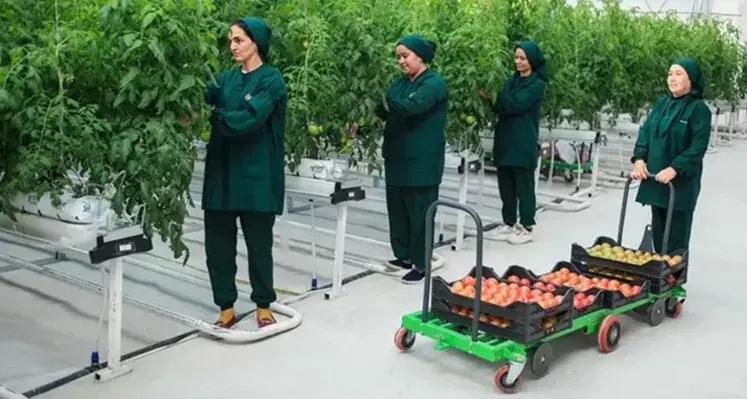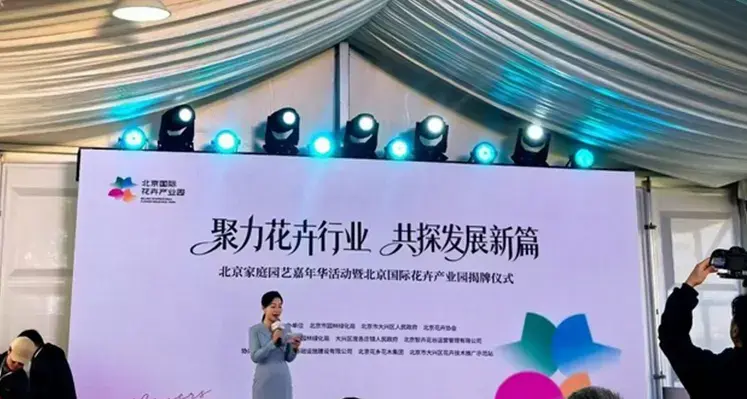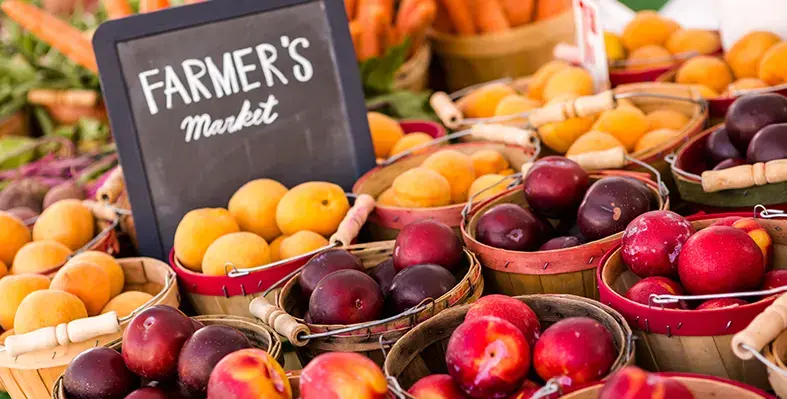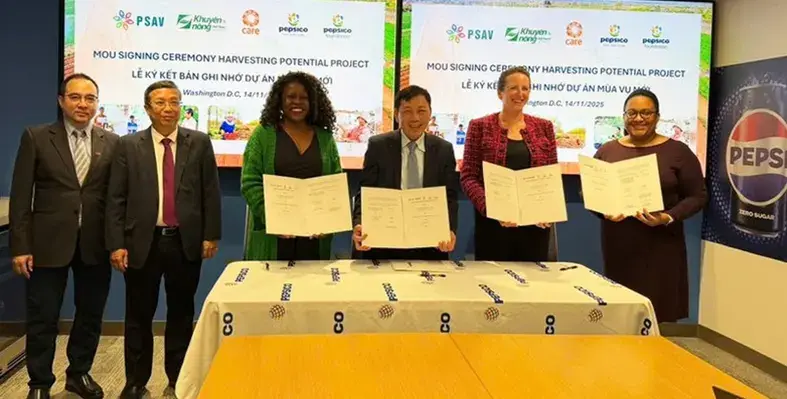
The greenhouse is equipped with cutting-edge agricultural technologies.(Image credit: Turkmen portal)
Turkmenistan has taken another significant step towards advancing high-tech agriculture with the launch of a modern greenhouse complex in the Balkan province.
The new facility has been constructed and commissioned at the Nurly meýdan farming enterprise in the Bereket district, underscoring the country’s growing focus on sustainable food production and agricultural innovation.
The opening ceremony brought together a wide range of attendees, including representatives of the Balkan province and Bereket district administrations, members of the Union of Industrialists and Entrepreneurs, public organisations, deputies of the Mejlis, members of the Halk Maslahaty (People’s Council), respected elders, and local residents. The event reflected the importance of the project for both regional development and national food security.
During the celebrations, builders who played a key role in completing the project were honoured with valuable gifts presented on behalf of the President of Turkmenistan. The ceremony was enlivened by traditional songs and dances performed by local artists, creating a festive atmosphere that highlighted the cultural significance of the occasion.
Following the elders’ blessing, guests were invited to tour the greenhouse and explore its advanced infrastructure and production systems. Spanning an area of 10 hectares, the complex is complemented by fully landscaped surroundings and a range of technical and auxiliary facilities designed to support efficient operations.
The greenhouse is equipped with cutting-edge agricultural technologies supplied by companies from the Netherlands, Türkiye, Greece, Italy, Spain, and other countries. With an annual production capacity of up to 2,000 tonnes of tomatoes, the facility is expected to make a substantial contribution to domestic food supply.
Elite tomato seeds imported from European countries have already been planted and are beginning to produce their first harvest, highlighting the project’s strong production potential and its role in strengthening agricultural development and food security in the region.







